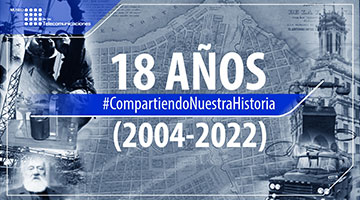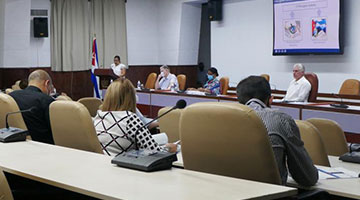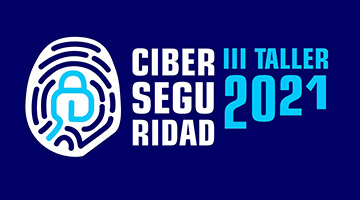NEWS
Girls, ICTs and the gap we are closing in Cuba
In 2010, the International Communications Union (ITU), linked to the UN, decided to celebrate every year, on the fourth Thursday of April, “the International Girls in The New Information and Communication Technologies Day”, according to the UN Women website, “to encourage girls and young women to consider the possibility of focusing their studies and professions on the field of technological careers”.
This article presents the fact that it is a strategy focused on “reducing the gap between men and women and contributing to empowerment and gender equality”. The article also provides data that ensure that women make up only 27 to 28 percent of those enrolled in educational areas related to ICTs.
Cuba is not exempt from this problem. According to data published in 2018, the percentage of women pursuing careers such as Computer Science, Computer Engineering, Computer Science Engineering, Telecommunications Engineering and Automatic Engineering, did not exceed, in any of the cases, 40 percent.
However, more and more women hold management positions in the top companies linked to ICTs in the country. One of them is ETECSA, the Telecommunications Company of Cuba S.A., which not only intends to narrow the gap internally, but is also committed to motivating and training girls to approach these profiles. To corroborate this, we visited the Central Palace of Computer Science.
One of the two clubs that ETECSA sponsors at the Palace is about telecommunications networks. It is probably the most technical club and, surprisingly four out of its five eighth-grade students are girls. All these girls are very smart, by the way, when putting on the accessories and handling the model of the fixed telephone network that the company has provided them.
Another interesting detail is that one of the girls is very sure that she wants to apply for an intermediate technician course in Telecommunications. Her name is Alejandra Roque Álvarez and, like the rest of the students, she comes to the Palace every Thursday from the Enrique Galarraga School, in the municipality of Habana Vieja.
In the other club, more focused on telecommunications services, things are the other way around: five boys and only one girl, Dalena Gil Collado, who is also sure that she wants to apply for the middle-level technician degree in Telecommunications. Her classmates, Michael Castillo Gómez, Sergio Leandro Castillo Pérez, Erick Anthony Reyes Herrera and Aaron Manuel Vila Hernández, have no problem working as commercial executives in ETECSA offices, even though it is a position usually occupied by women.
Claribel, head of the Communications area, explained to us that the recruitment process does not take into account the gender of the students and they work equally with boys and girls in all the roles that involve the specialties of each club.
The teacher said that at the moment, due to the COVID-19 sanitary measures, they have five members in each club, but the usual enrollment was 10. In order for more students to have the possibility of approaching this area of the Palace, they have organized three shorter courses in what used to be only one. Currently, each of these courses includes 350 children from different schools and municipalities in the capital.
For this teacher, the most important thing is that “they can be able to share everything they learn here at school, at home, in the community. There is something very important that is also dealt with in the specialties, and that is the love for professions and trades. In this case, for example, they teach the subject of the repairers, the importance they have, the quality of the services.... They always receive the most updated information as possible and, although the intention is to motivate them towards related careers, if they do not choose them, they are in a position to share what they learn among other children”.
In addition to the two spaces, they have with ETECSA, the area has clubs in computer science, radio communications, Cuban mail, and a project with the IT Youth Clubs. Girls and boys participate in all of them, but the majority, in general, are girls.
And the teachers are also girls
Almost girls, the twenty-something instructors not only share their own enthusiasm for the New Information and Communication Technologies (ICTs) and transmit knowledge acquired during years of study (Adriana Enamorado Hallas, graduated as a Telecommunications technician, and Melissa Díaz Paz, in Computer Science). In addition, they come with the impulse of the living example that they themselves are of girls who feel like fish in water in the world of new technologies.
Adriana and Melissa are not the exception, but the rule in this area of the Central Palace of Computer Science, because there is a group of women proudly connected with new technologies and their uses, without limits or prejudices: they show good practices in customer service in a commercial office as well as how to climb a pole in the polygon that ETECSA also helped to design.
And Claribel makes an aside to acknowledge ETECSA's support, which "really has a very well-defined check-up system here. The instructors are directly attended by ETECSA's Training Center. In addition, the company is in charge of supplying and updating the study material base. For example, at the moment we even have Wi-Fi, which is guaranteed by ETECSA".
Tangled in the network
Although they do not have in mind to study careers related to telecommunications, the rest of the girls in the network workshop are very clear that they will not be on the fringes of technology either:
“I want to study biochemistry. Communication technologies are very necessary to be able to exchange with colleagues from other countries, share research information, besides the fact that the equipment itself has more advanced technologies every day, and are even connected”, explains Claudia O'Farrill Muñoz.
Meanwhile, Alexa Lorenzo Vila aspires to work as a tourist guide and is convinced that in this field “networks are everything”. She argues its usefulness in the need to communicate with “tourists, other guides, drivers, agencies, and also when working in the office with company data”.
These clubs also prepare them to feel more confident in the digital environment. Although it is not the fundamental element of the program, the instructors take advantage of the students’ own concerns or experiences to alert them and teach them how to keep themselves safe, especially in the context of social networks, from any kind of harassment, as well as from hackers, identity theft, computer viruses, among other risks.
Although he is male, Dayán García Pérez does not feel excluded in the group. He is inclined towards a career in Computer Science, but his intention is to start it at the higher level, after finishing high school.
These girls and boys are growing up with a new, less sexist and fairer conception of relating to getting acquainted with the new information and communication technologies, with more access and greater security.


















